Fall 2023
Housekeeping
•Participants may not record.
•Change Zoom name to match registration name
•Please list your institution with your name
•Raise hand or use chat function to ask questions
•Context
•Examples in hypotheticals

Title IX Training7/19‐20/2023 © 2023 Husch Blackwell LLP. All Rights Reserved.
© 2023 Husch Blackwell LLP Title IX Sexual Harassment Response Participants in sexual harassment policy process
© 2023 Husch Blackwell LLP. All Rights Reserved.
© 2023 Husch Blackwell LLP
1 2

Breakout Groups & Group Scenarios
Scenarios discussed in Breakout Groups
Introduce yourselves and select a spokesperson
Scenario and questions for each Group Scenario will be posted in the Chat Box
Presenters will randomly call on Breakout Groups to provide your responses –be ready!
Cameras on for breakouts
Evolving Regulations
•This training is based on currentlyoperative sexual harassment regulations (August 2020)
•We will highlight potential changes that may result from proposed regulations that are not yet effective
•The effective date and final language of proposed regulations have yet to be determined
•Litigation may challenge final regulations once effective

Title IX Training7/19‐20/2023 © 2023 Husch Blackwell LLP. All Rights Reserved.
2023 Husch Blackwell LLP
©
2023 Husch Blackwell LLP
©
3 4
Agenda
•Title IX Scope & Jurisdiction
•Intake and Supportive Measures
•The Investigation
•The Hearing
•Informal Resolution and Other Processes
•Proposed Regulatory Changes

© 2023 Husch Blackwell LLP
Learning Objectives & Goals
©
Title IX Training7/19‐20/2023 © 2023 Husch Blackwell LLP. All Rights Reserved.
2023 Husch Blackwell LLP
5 6
Learning Objectives
Pending changes
Key definitions
Understand required process for resolving Title IX Sexual Harassment matters and your role in that process
Best practices
© 2023 Husch Blackwell LLP
Regulatory requirements
Goals of Title IX Processes

•Prompt and equitable resolution of Title IX Sexual Harassment matters
•For parties and other affected individuals
•In compliance with institutional legal obligations and
•While reflecting institutional values
© 2023 Husch Blackwell LLP
Title IX Training7/19‐20/2023 © 2023 Husch Blackwell LLP. All Rights Reserved.
7 8
Where does our work have an impact?
Institutional stakeholders
U.S. Department of Education (ED)
Office for Civil Rights

•Parties/witnesses
•Broader community
•Decision-makers (hearing and appeal officials)

•Looks primarily to regulatory compliance
Courts

•Look to whether institutional response is “deliberately indifferent,” whether process is free of discrimination, and whether related legal obligations are met (due process; free speech)
© 2023 Husch Blackwell LLP
How can we help ensure success?
•Understand and follow institutional policies and procedures
•Support “due process” resolution and mindset
•Notice + opportunity to be heard
•Equitable procedures
•No preordained outcome
•Provide critical documentation of process, evidence and reasoning
© 2023 Husch Blackwell LLP
Title IX Training7/19‐20/2023 © 2023 Husch Blackwell LLP. All Rights Reserved.
9 10
What is Title IX?
“[N]o person in the United States shall on the basis of sex be excluded from participation in, be denied the benefits of, or be subjected to discrimination under any education program or activity receiving federal financial assistance.”
32 C.F.R. §106.31

© 2023 Husch Blackwell LLP
Title IX Training7/19‐20/2023 © 2023 Husch Blackwell LLP. All Rights Reserved.
© 2023 Husch Blackwell LLP Title IX Scope & Jurisdiction
11 12
What are the institution’s overall duties?
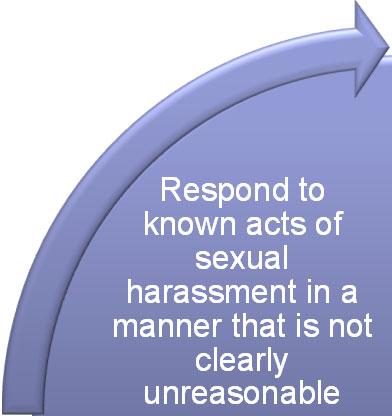


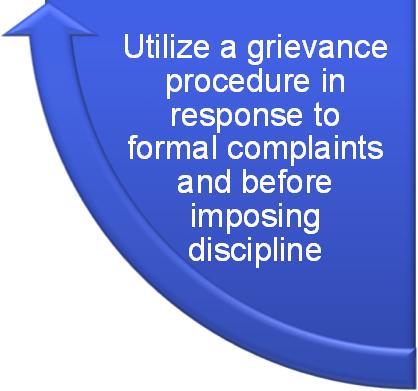
© 2023 Husch Blackwell LLP
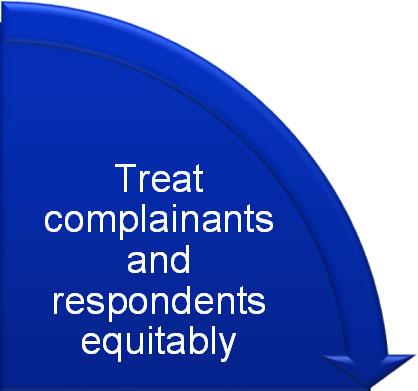



To which entities does Title IX apply?

Entities that receive federal financial assistance, including colleges and universities that participate in U.S. Dept. of Ed. Federal Student Aid funding
•Not individual persons
•But institutions are required to adopt policies and procedures to implement Title IX that do apply to individual persons
© 2023 Husch Blackwell LLP
Title IX Training7/19‐20/2023 © 2023 Husch Blackwell LLP. All Rights Reserved.
13 14
Two Main Types of Sex Discrimination
•Adverse treatment involves adverse action that is motivated by the target’s sex and that directly limits or excludes the target from participation in education program or activities
•Usually by someone in a supervisory or authoritative position
•Sexual harassment involves
•Unwelcome conduct that is
•Either sexual in nature or sex based and
•Quid pro quo; hostile environment; sexual assault; or domestic violence, dating violence, stalking
College consistently denies a particular hands-on clinical rotation to female radiologic technology students.
•Sexual harassment is currently subject to more elaborate regulations governing investigation and determination ©

Title IX Training7/19‐20/2023 © 2023 Husch Blackwell LLP. All Rights Reserved.
2023 Husch Blackwell LLP
©
2023 Husch Blackwell LLP
15 16
Example: Adverse Treatment
Student repeatedly posts unwelcome images of genitalia on the bulletin board of another student following the breakup of a romantic relationship between the two, andtells “jokes” about the other student’s sexual preferences.
Example: Sexual Harassment

What is the scope of Title IX’s reach?
•Title IX applies to sex discrimination in the “education program or activity” of a federal funding recipient
•Title IX defines “education program or activity” to include the “operations” of educational institutions
•Title IX does notapply to private conduct occurring in private location that is not part of education program/activity
©
Sex Discrimination Education program / activities
•ED: All U.S. operations
Title IX Training7/19‐20/2023 © 2023 Husch Blackwell LLP. All Rights Reserved.
2023 Husch Blackwell LLP
©
2023 Husch Blackwell LLP
17 18
What are examples of education programs and activities?
Clinical rotations
Off-campus trips or experiences organized by the institution
Sponsored organization activities
Anything else that happens on-campus
Does Title IX apply to off-campus sexual harassment?

Yes, ifthe conduct at issue occurs in the context of an education program or activity

Yes, ifthe conduct at issue occurs in location owned/controlled by the institution or officially-recognized student organization

No, if it occurs in a private location and is not part of an institution’s education program or activity

No, if it occurs outside the United States
©
Title IX Training7/19‐20/2023 © 2023 Husch Blackwell LLP. All Rights Reserved.
© 2023 Husch Blackwell LLP
Admissions Hiring Workplace Academic instruction Residence life Events/amenities on campus Sports teams Work-study
2023 Husch Blackwell LLP
19 20
Student alleged sexual assault in Football Player’s off-campus apartment. Player’s scholarship paid for apartment, and Player received coach approval to live off campus.

Frankie Foundation alleges sexual harassment by Dallas Donor of several individuals at various events to which donors are invited by the University Foundation. The individuals include Frankie’s wife, an alumnus, and a former University employee.

Title IX Training7/19‐20/2023 © 2023 Husch Blackwell LLP. All Rights Reserved. © 2023 Husch Blackwell LLP
Example: Included in EP&A? © 2023 Husch Blackwell LLP
Example: Included in EP&A? 21 22
Does Title IX apply to sexual harassment in other countries?
•No –the Department of Education interprets Title IX to apply only within the geographic boundaries of the United States
•But sexual harassment that occurs abroad could “contribute” to a hostile environment on campus
©

What other policies might apply?

©
•Institutions are free to use
•Student code of conduct
•Faculty/employee handbooks
•Other policies to address sexual harassment that does not occur in an education program or activity
Title IX Training7/19‐20/2023 © 2023 Husch Blackwell LLP. All Rights Reserved.
2023 Husch Blackwell LLP
Blackwell LLP
2023 Husch
23 24
What
the
process?
When must we dismiss a Title IX complaint?

•Alleged sexual harassment occurred outside education programs or activities
•Alleged misconduct could not be sexual harassment even if true
•Complainant is not a current participant in education programs and activities at time of complaint
Title IX Training7/19‐20/2023 © 2023 Husch Blackwell LLP. All Rights Reserved.
2023 Husch Blackwell LLP
©
Appeal
2023 Husch Blackwell LLP
is
grievance
Report + Formal Complaint (Complainant’s or, sometimes, institutional option) Investigation to collect relevant inculpatory and exculpatory evidence Live hearing before a decision-maker who finds facts under an evidentiary standard and determines the existence (or not) of a policy violation and any resulting sanctions/remediation
©
25 26
When may we dismiss a Title IX complaint?
•Complainant withdraws allegations in writing
•Respondent is no longer employed or is no longer a student

Who are the key institutional actors in the grievance process?

•Specific circumstances prevent the institution from gathering evidence sufficient to reach a determination ©




Title IX Training7/19‐20/2023 © 2023 Husch Blackwell LLP. All Rights Reserved.
2023 Husch Blackwell LLP
©
2023 Husch Blackwell LLP
Title IX Coordinator Investigator Hearing Chair/ Panel Appellate Officer Informal Resolution Coordinator 27 28
What general principles govern the grievance process?
•Equitable treatment of complainants and respondents
•Presumption respondent did not violate policy unless and until a determination is made after hearing
•No stereotypes based on a party’s status as complainant or respondent
•Conflict and bias-free institutional participants
•Trauma-informed

©
Who
is
responsible for identifying conflicts of interest and bias?
Title IX Coordinator or designee oversees grievance process and must address known or reported conflicts of interest/bias
Institution must also permit parties to raise concerns of conflicts of interest and bias
*Individual institutional actors should self-police conflicts of interest and self-identify bias
©
Title IX Training7/19‐20/2023 © 2023 Husch Blackwell LLP. All Rights Reserved.
2023 Husch Blackwell LLP
Blackwell LLP
2023 Husch
29 30
What is a conflict of interest?
•When an individual has a material connection to a dispute, or the parties involved, such that a reasonable person would question the individual’s ability to be impartial

•May be based on prior or existing relationships, professional interest, financial interest, prior involvement, and/or nature of position

Title IX Training7/19‐20/2023 © 2023 Husch Blackwell LLP. All Rights Reserved.
© 2023 Husch Blackwell LLP
=
31 32
Standard of evidence Preponderance of the evidence
“more likely than not”
What is sexual harassment?
Conduct on the basis ofsexthat is:
Quid pro quo harassment
Hostile environment harassment
Sexual assault
Dating violence
© 2023 Husch Blackwell LLP
Domestic violence Stalking
What is quid pro quo?
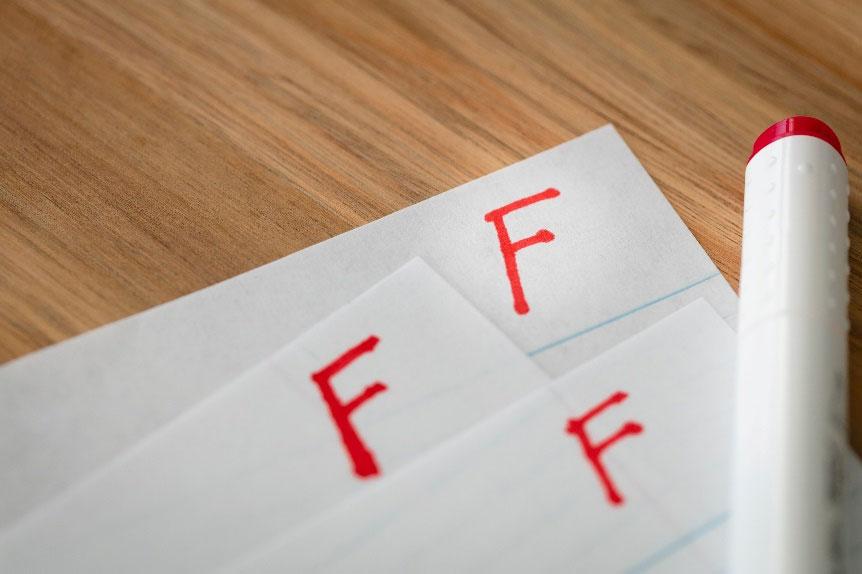
•An employee of the institution conditions the provision of some aid, benefit, or service on another person’s participation in unwelcome sexual conduct
•Often arises in the employment context or where an employee holds a position of authority over a student
© 2023 Husch Blackwell LLP
Title IX Training7/19‐20/2023 © 2023 Husch Blackwell LLP. All Rights Reserved.
33 34
A supervisor regularly comments on a student worker’s appearance and glares at the student worker’s body. When the student worker expresses displeasure with this conduct, the supervisor says, “C’mon, let an old dog have a little fun. Leave me alone and I’ll make sure you get better hours next month.”

What is hostile environment?
Unwelcome conduct determined by a reasonable person to be so severe, pervasive, and objectively offensive that it effectively denies a person equal access to the recipient’s education program or activity.

Title IX Training7/19‐20/2023 © 2023 Husch Blackwell LLP. All Rights Reserved.
2023 Husch Blackwell LLP
©
quo
2023 Husch Blackwell LLP
Example: Quid pro
©
35 36
Respondent Campus Security Officer is Complainant Student Worker’s supervisor. Officer regularly asks Student about Student’s dating life, comments on Student being attractive, and discusses his sexual relationships in some detail with Student. On three occasions, Officer massaged Student’s shoulders: once when Student complained of an athletic shoulder injury, once when Student was crying after a breakup, and once when Student was tense about finals.
Example: Potential hostile environment

What factors could suggest systematic discrimination?
Repeated and pervasive conduct
Reduction in academic performance
Need to transfer class
Conduct prompts others to harass/discriminate
Disruption in class
Need for counseling
Others????
©
Title IX Training7/19‐20/2023 © 2023 Husch Blackwell LLP. All Rights Reserved.
2023 Husch Blackwell LLP
©
2023
Blackwell LLP
Husch
37 38
Does refusal to use chosen names and pronouns create a hostile environment?
•Federal law does not (presently) mandate the use of chosen (a/k/a “preferred”) names or pronouns for any student (cisgender, transgender, or otherwise)
•But the refusal to use chosen names and pronouns based on protected status and/or the use of non-chosen names and pronouns based on protected status may constitute discrimination or harassment based on the facts
©
What about the First Amendment or other “free speech”?
While sexual harassment can be verbal or written in nature, sexual harassment under Title IX does not include conduct that is protected by the First Amendment
The subjective offensiveness of speech, alone, is not sufficient to create a hostile environment

© 2023
Title IX Training7/19‐20/2023 © 2023 Husch Blackwell LLP. All Rights Reserved.
2023 Husch Blackwell LLP
Husch Blackwell LLP
39 40
The Title IX Religious Exemption
•Title IX “does not apply to an educational institution which is controlled by a religious organization to the extent application of [Title IX] would not be consistent with the religious tenants of such organization.” 20 U.S.C. § 1681(a)(3)
•Nuanced application
•Title VII and state law may prohibit employment discrimination (classic discrimination and failure to accommodate absent undue hardship) based on sincerely held religious beliefs at public and private institutions
Groff v. DeJoy (U.S. 2023)
•Postal worker seeking to maintain Sundays to worship and rest
•Supreme Court held Title VII requires an employer that denies a religious accommodation to show that the burden of granting an accommodation would result in substantial increased costs in relation to the conduct of its particular business.
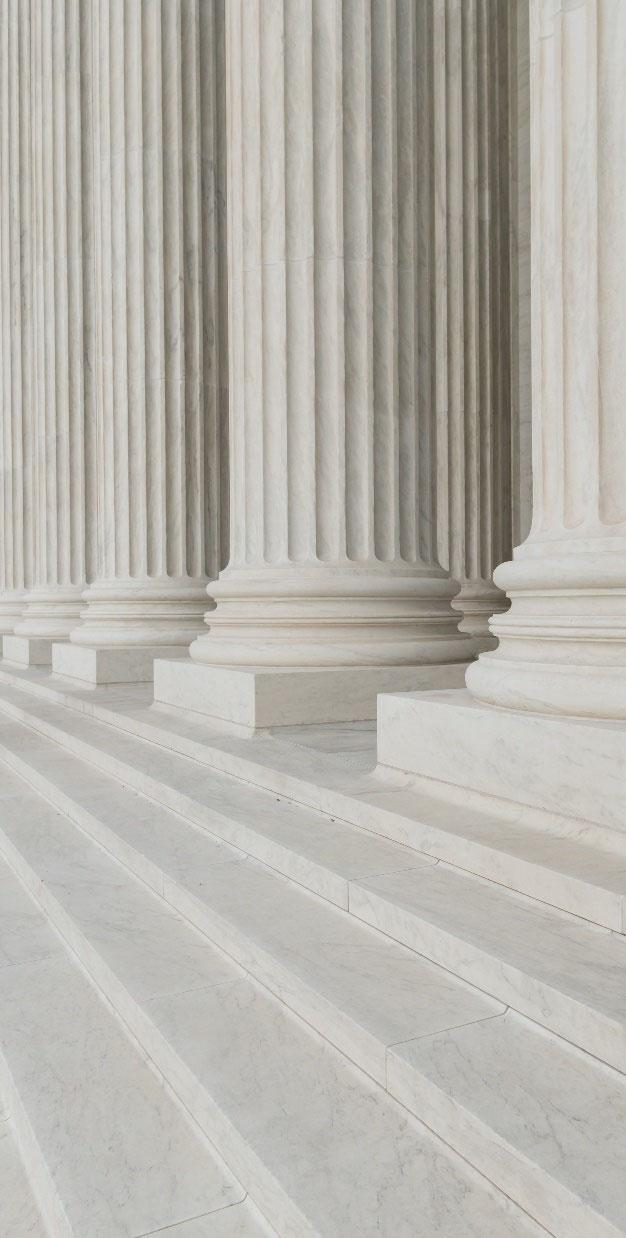
Title IX Training7/19‐20/2023 © 2023 Husch Blackwell LLP. All Rights Reserved.
© 2023 Husch Blackwell LLP
41 42
© 2023 Husch Blackwell LLP
What is sexual assault?
•Title IX regulations define “sexual assault” as incorporating the following classes of conduct: Rape Sodomy
Sexual assault with an object Fondling Incest
© 2023 Husch Blackwell LLP
What is rape?
Having carnal knowledge of a person, without the consent of the victim, including instances where the victim is incapable of giving consent because of age or because of temporary or permanent mental or physical incapacity. There is “carnal knowledge” if there is the slightest penetration of the vagina or penis by the sex organ of the other person. Attempted rape is included.
© 2023 Husch Blackwell LLP
Title IX Training7/19‐20/2023 © 2023 Husch Blackwell LLP. All Rights Reserved.
43 44
What is consent?
•Words or actions that a reasonable person in the respondent’s perspective would understand as agreement to engage in the sexual conduct at issue
•A person who is incapacitated is not capable of giving consent
•Consent cannot be procured by coercion
•Be aware of minimum age of consent
©

What is incapacity?
Incapacity refers to a state where a person does not appreciate the nature or fact of sexual activity due to the effectof drugs or alcohol consumption, medical condition or disability, or due to a state of unconsciousness or sleep.
©
Title IX Training7/19‐20/2023 © 2023 Husch Blackwell LLP. All Rights Reserved.
2023 Husch Blackwell LLP
Husch Blackwell LLP
2023
45 46
Brett has been drinking all day with Brett’s team at a post-season event. Throughout the day, Brett is behaving boisterously, but walking and talking without incident, tracking conversations, and seems to be having fun. The group goes to a bar in the evening, where Brett begins slurring speech, needing help to walk and use a phone, and is not making sense.

What is statutory rape?

•Sexual intercourse with a person who is under the statutory age of consent as defined by law.
Title IX Training7/19‐20/2023 © 2023 Husch Blackwell LLP. All Rights Reserved.
2023 Husch Blackwell LLP
©
Example: Incapacitated
2023 Husch Blackwell LLP
©
47 48
State law sets a minimum age of consent at 17. A 16-year-old graduates from high school early and attends college the following fall. 16year-old’s boyfriend from high school, who is 18, also attends college, and the two have sex on campus in 18-year-old’s dorm room. Neither student complains. The Title IX Coordinator learns of the incident from an anonymous report Example:

©
What is sodomy?
•Oral or anal sexual intercourse with another person without the consent of the victim, including instances where the victim is incapable of giving consent because of age or because of temporary or permanent mental or physical incapacity.
©
Title IX Training7/19‐20/2023 © 2023 Husch Blackwell LLP. All Rights Reserved.
2023 Husch Blackwell LLP
Statutory rape
2023 Husch Blackwell LLP
49 50
What is sexual assault with an object?
•Using an object or instrument to unlawfully penetrate, however slightly, the genital or anal opening of the body of another person, without the consent of the victim, including instances where the victim is incapable of giving consent because of age or because of temporary or permanent mental or physical incapacity. An “object” or “instrument” is anything used by the perpetrator other than the perpetrator’s genitalia.
© 2023 Husch Blackwell LLP
What is fondling?
Touching of the private body parts of another person for the purpose of sexual gratification, without the consent of the victim, including instances where the victim is incapable of giving consent because of age or because of temporary or permanent mental or physical incapacity.
© 2023 Husch Blackwell LLP
Title IX Training7/19‐20/2023 © 2023 Husch Blackwell LLP. All Rights Reserved.
51 52
Facilities Tech and Assistant Provost are dating. They are at a campus event together where significant others are invited. At one point, Provost rests their hand on the Tech’s hip/buttocks, and Tech swiftly moves the hand away.
Example: Fondling?

What is domestic violence?
Felony or misdemeanor crimes of violence committed by a current or former spouse or intimate partner of the victim, by a person with whom the victim shares a child in common, by a person who is cohabitating with or has cohabitated with the victim as a spouse or intimate partner, by a person similarly situated to a spouse of the victim under the domestic or family violence laws of the state, or by any other person against an adult or youth victim who is protected from that person’s acts under the domestic or family violence laws of the state.
©
Title IX Training7/19‐20/2023 © 2023 Husch Blackwell LLP. All Rights Reserved.
2023 Husch Blackwell LLP
©
2023 Husch Blackwell LLP
53 54
What is dating violence?
“Dating Violence” is violence committed by a person:
•Who is or has been in a social relationship of a romantic or intimate nature with the victim; and
•Where the existence of such a relationship will be determined based on consideration of the following factors:
•The length of the relationship;
•The type of relationship; and
•The frequency of interaction between the persons involved in the relationship.

Casey Complainant has been on several dates and engaged in consensual sexual activity on at least five occasions with Rowan Respondent. The two are arguing one night, and Rowan tries to drive a car into Casey, smashing into a nearby wall instead.
Example: Dating violence

Title IX Training7/19‐20/2023 © 2023 Husch Blackwell LLP. All Rights Reserved.
Husch Blackwell LLP
© 2023
Husch Blackwell LLP
© 2023
55 56
What is stalking?

•Engaging in a course of conduct directed at a specific person that would cause a reasonable person to:
•Fear for their safety or the safety of others; or
•Suffer substantial emotional distress.
Camden Complainant alleges that Reese Respondent has been stalking Camden. After Camden told Reese to stop contacting Camden, Reese sent two short direct messages via a social media app to Camden, apologizing for scaring Camden; and three brief emails, again expressing remorse for hurting Camden and asking to talk about their relationship.
Example: Stalking?

©
Title IX Training7/19‐20/2023 © 2023 Husch Blackwell LLP. All Rights Reserved.
2023 Husch Blackwell LLP
©
2023 Husch Blackwell LLP
57 58
Does Title IX also prohibit retaliation?
Yes –Title IX prohibits intimidation, threats, coercion, or discrimination against any individual for the purpose of interfering with any right or privilege secured by Title IX and its implementing regulations or because an individual has made a report or complaint, testified, assisted, participated in or refused to participate in any manner in an investigation, proceeding, or hearing under the institution’s policy.

Title IX Training7/19‐20/2023 © 2023 Husch Blackwell LLP. All Rights Reserved. © 2023 Husch Blackwell LLP
© 2023 Husch Blackwell LLP
Name Example 59 60
Chosen

Group Scenario
Charlie Complainant is a transgender man studying abroad in Italy through the University’s language program. Riley Respondent is a female student studying abroad in the same program. Over the course of the semester, Riley misgenders Charlie during every conversation they have, which is usually at least once a day.
For the first couple of months, Charlie corrected Riley and let her know he was uncomfortable with being misgendered. After the conduct continued, however, Charlie stopped correcting Riley and began avoiding classes and activities in the study abroad program so he would not have to see or interact with Riley.
After the study abroad program ends, Charlie and Riley return to the University’s main campus where he learns from a friend that Riley has been telling people stories about their study abroad trip, and in those stories, Riley always misgenders Charlie.
Charlie is distraught and ultimately withdraws from the University. A month after he withdraws, he contacts the Title IX Coordinator to file a Formal Complaint against Riley for Hostile Environment Sexual Harassment.
Meriwether v. Hartop (6th Cir. 2021) (1 of 2)
•Institution adopts mandatory chosen pronouns policy
•Faculty member wishes to refer to transgender students by last name instead of chosen honorific or pronouns
•Institution finds faculty member engaged in hostile environment harassment and/or adverse treatment discrimination ©

Title IX Training7/19‐20/2023 © 2023 Husch Blackwell LLP. All Rights Reserved.
© 2023 Husch Blackwell LLP
Husch Blackwell LLP 61 62
2023
Meriwether v. Hartop (6th Cir. 2021) (2 of 2)
•Faculty member files lawsuit asserting free speech, freedom of religion, and due process claims
•Faculty member’s claims survive a motion to dismiss
•Court says: “there is no suggestion [faculty] member’s speech inhibited his duties in the classroom, hampered the operation of the school, or denied Doe any educational benefits.”
•“[Faculty member’s] decision not to refer to Doe using feminine pronouns did not have a [systematic effect of denying the victim equal access to an education program or activity].” ©


Title IX Training7/19‐20/2023 © 2023 Husch Blackwell LLP. All Rights Reserved.
63 64
2023 Husch Blackwell LLP Questions
Intake and Supportive Measures
© 2023 Husch Blackwell LLP
© 2023 Husch Blackwell LLP

How does an institution get notice of sexual harassment? •Sexual harassment response is triggered when institution has “actual knowledge” of potential sexual harassment.
© 2023 Husch Blackwell LLP
Title IX Training7/19‐20/2023 © 2023 Husch Blackwell LLP. All Rights Reserved.
65 66
What is “actual knowledge”?
•“Actual knowledge” occurs when
•An institutional official, with authority to take corrective action
•Observes or receives a report
•Of sexual harassment occurring in the institution’s education programs and activities
When do we reach out to the alleged victim?
•After institution has actual knowledge of alleged sexual harassment, Title IX Coordinator must contact alleged victim
•Provide information about supportive measures, explain the grievance process and how to file a formal complaint, and discuss the alleged victim’s wishes
©

Title IX Training7/19‐20/2023 © 2023 Husch Blackwell LLP. All Rights Reserved.
2023 Husch Blackwell LLP
©
2023 Husch Blackwell LLP
67 68
Shermanv.The Regentsof Univ. of Cal. (N.D. Cal. 2022)
•In allowing claim of Title IX deliberate indifference to proceed, court noted the allegation that over four months passed between the former graduate student plaintiffs’ initial email to the dean about the professor respondent’s conduct and U.C. Santa Cruz placing him on leave pending an investigation.

What if we can’t identify the alleged victim from a report?
•Title IX Coordinator should oversee preliminary investigation to determine identity of alleged victim
•If identity of alleged victim cannot be discerned after reasonable inquiry, matter should be documented and consideration given as to whether other policies (such as student code of conduct) are utilized
Title IX Training7/19‐20/2023 © 2023 Husch Blackwell LLP. All Rights Reserved.
© 2023 Husch Blackwell LLP © 2023 Husch Blackwell LLP
69 70
Do we need a formal complaint before contacting the alleged victim?
•No. Not in order to contact the alleged victim and begin support services
•The formal complaint is a specific written document that is required to commence the investigation and hearing process
What are supportive measures?
•Non-disciplinary, non-punitive supports and accommodations designed to preserve access to education programs and activities
•Reasonably available without fee or charge
•Without unreasonably burdening the other party

©
Title IX Training7/19‐20/2023 © 2023 Husch Blackwell LLP. All Rights Reserved.
© 2023 Husch Blackwell LLP
2023 Husch Blackwell LLP
71 72
Examples of supportive measures


Counseling
Academic accommodations

Housing accommodations

Security escorts

Leave of absence


Increased security or monitoring
Modified work schedules

Mutual no-contact order whereimplicated by facts
© 2023 Husch Blackwell LLP
Evan Employee requests time off from work to attend counseling appointments during the course ofa sexual misconduct allegation brought by Evan against Sam Supervisor.

© 2023 Husch Blackwell LLP
Title IX Training7/19‐20/2023 © 2023 Husch Blackwell LLP. All Rights Reserved.
73 74
Example: Reasonable Supportive Measure
Student accuses Resident Assistant of sexual assault. Student requests that institution ban Resident Assistant from the small campus until Student completes courses in three years
Example: Reasonable Supportive Measure?

© 2023 Husch Blackwell LLP
Do students and employees have other rights to accommodation?
•Yes—other laws may trigger accommodations when a medical condition or disability is present. E.g.:
•Americans with Disabilities Act
•Family and Medical Leave Act
•Section 504 of the Rehabilitation Act
•Title IX pregnancy accommodation provisions
© 2023 Husch Blackwell LLP
Title IX Training7/19‐20/2023 © 2023 Husch Blackwell LLP. All Rights Reserved.
75 76
What if the report falls outside Title IX jurisdiction?

•Title IX requires supportive measures for reported sexual harassment covered by Title IX
•Institute may provide supportive measures for reported conduct that falls outside Title IX’s scope
Are supportive measures confidential?
•Generally, yes
•Only shared to the extent necessary to effectuate the purpose of the supportive measure
•Only shared with institutional employees who have a legitimate need to know

Title IX Training7/19‐20/2023 © 2023 Husch Blackwell LLP. All Rights Reserved.
2023 Husch Blackwell LLP
©
LLP
© 2023 Husch Blackwell
77 78
Who is responsible for supportive measures?
•Title IX Coordinator is responsible for “coordinating the effective implementation”
•May be delegated with appropriate oversight
•Typically, a collaborative effort involving more than one institutional office or department
Can we utilize interim removals or suspensions for students?

•Students may be removed on emergency basis if:
•Individualized safety and risk analysis
•Determines an immediate threat to physical health or safety of any student or other individual arising from the alleged sexual harassment justifies removal
•Student is given immediate notice and opportunity to contest the removal
©
Title IX Training7/19‐20/2023 © 2023 Husch Blackwell LLP. All Rights Reserved.
© 2023 Husch Blackwell LLP
LLP
2023 Husch Blackwell
79 80
Can we utilize an already existing process for interim removals?
•Yes, if that process complies with the Title IX standard.
•Common institutional examples include:
•Threat assessment policy
•Critical Incident Response Team (“CIRT”)
•Interim suspension provisions of Student Handbook
©

How do we approach trauma in a Title IX case?
Balance
“Trauma-informed investigation techniques that bleed over into … bias detract from the fundamental tenets of fairness and impartiality that are [key to] disciplinary proceedings.”
-Candace Jackson, Acting Asst. Secretary of ED (2017)
©
Title IX Training7/19‐20/2023 © 2023 Husch Blackwell LLP. All Rights Reserved.
2023 Husch Blackwell LLP
2023 Husch Blackwell LLP
81 82
What is the definition of trauma?



Merriam-Webster: A very difficult or unpleasant experience that causes someone to have mental or emotional problems usually for a long time
English Oxford: Deeply distressing or disturbing experience
Wikipedia: Is a type of damage to the psyche that occurs as a result of a severely distressing event. Trauma is often the result of an overwhelming amount of stress that exceeds one's ability to cope, or integrate the emotions involved with that experience
© 2023 Husch Blackwell LLP
Possible trauma impact Flashbacks
•People who have suffered trauma may, but may not, experience any or a mix of:




© 2023 Husch Blackwell LLP
Title IX Training7/19‐20/2023 © 2023 Husch Blackwell LLP. All Rights Reserved.
83 84
Delayed recollection Inability to concentrate Non-linear recollection Self-blame
Trauma & credibility
•Avoid making assumptions based on the way an individual delivers information
•Understand memory may be clarified in time
•Address inconsistencies
©
Three student Complainants come forward at once, accusing student Respondent of sexual assault on three occasions over the course of a month following casual encounters—in which they met Respondent for the first time—in a class, the snack shop, and a residence hall lobby.

©
Title IX Training7/19‐20/2023 © 2023 Husch Blackwell LLP. All Rights Reserved.
2023 Husch Blackwell LLP
Blackwell LLP
2023 Husch
85 86
Example: Immediate threat to physical health or safety
Can we place employees on administrative leave?
•Yes –employee respondents may be placed on administrative leave without requisite showing of threat to physical health or safety
Student alleged that two employees sexually harassed student in two separate incidents. Institution placed employees on administrative leave, began investigation, and student did not interact with employees further. The institution ultimately determined that the preponderance of the evidence did not demonstrate policy violations and allowed the employees to return.
•Whether an opportunity to challenge administrative leave must be given depends on employee status and other policies (e.g., Faculty Handbook) ©

Title IX Training7/19‐20/2023 © 2023 Husch Blackwell LLP. All Rights Reserved.
2023 Husch Blackwell LLP
©
2023 Husch Blackwell LLP
87 88
Example: Administrative Leave
Supportive measures & unknown assailant Example

© 2023 Husch Blackwell LLP

Group Scenario
Title IX Coordinator receives a report that a Debate team member disclosed that Debater was sexually assaulted the previous weekend at a student organization’s off-campus party by an unknown assailant. The Title IX Coordinator meets with Debater, who verbally tells the Title IX Coordinator that Debater wants to make a Formal Complaint.
Debater does not know the identity of the assailant, butgives the Title IX Coordinator names of some of Debater’s friends who were with Debater at the party who may know the assailant’s name. Title IX Coordinator reaches out to the friends, but never receives a response.
Title IX Coordinator dismisses the case. Three months later, Debater contacts the Title IX Coordinator stating that Debater knows the identity of the assailant, who is a student at the College. Debater asks the Title IX Coordinator for supportive measures in the form of a mutual no contact order and a ban on the assailant from entering Debater’s residence hall or the library where Debater works.
© 2023 Husch Blackwell LLP
Title IX Training7/19‐20/2023 © 2023 Husch Blackwell LLP. All Rights Reserved.
89 90

Title IX Training7/19‐20/2023 © 2023 Husch Blackwell LLP. All Rights Reserved. © 2023 Husch Blackwell LLP Questions © 2023 Husch Blackwell LLP Documentation & Title IX Processes © 2023 Husch Blackwell LLP 91 92
What needs to be documented?
•Initial reports and assessments
•Supportive measures
•Formal complaints or decision not to proceed
•Notices and revised notices; other information provided to parties
•Investigation steps
•Evidence gathered and its origin
•Outcomes
•Informal resolution
•Initial decision
•Appeal decision
•Version of policy/procedure applied
Why document?

Identify opportunities to address open issues

Provide a basis upon which decision-makers can reach a determination

Explain conscious reasoning in decision-making

Demonstrate compliance (for appeals, ED, federal/state courts)
Title IX Training7/19‐20/2023 © 2023 Husch Blackwell LLP. All Rights Reserved.
Husch Blackwell LLP
© 2023
Blackwell LLP
© 2023 Husch
93 94
What is the end goal of documenting during the Title IX resolution process?
•A document demonstrating:
•Fair process
•Including alignment of applied process with written institutional policies/procedures
•As applicable
•Informal resolution process and outcome
•Thorough investigation
•Reasoned decision-making
•Under relevant policy language

©
Documenting Process Examples
•Including findings regarding material disputed facts, credibility, and inconsistencies (as applicable) ©
Title IX Training7/19‐20/2023 © 2023 Husch Blackwell LLP. All Rights Reserved.
2023 Husch Blackwell LLP
2023 Husch Blackwell LLP
© 2023 Husch Blackwell LLP 95 96
Student wishes to proceed on a sexual harassment formal complaint against someone not affiliated with the institution arising from sexual harassment at a concert on campus open to the public. Title IX coordinator documents the decision not to proceed with a formal complaint “because alleged perpetrator is not a member of the University community.”

Following a formal complaint, employee parties agree to an informal resolution in which they will “stay away from one another.” Title IX office closes the file with a short statement signed by each and no further action. Employee Complainant is then promoted, receiving a new office next door to Employee Respondent. When Employee Complainant explains to Supervisor that this is inappropriate, Supervisor refuses to move either party, citing limited office space.

Title IX Training7/19‐20/2023 © 2023 Husch Blackwell LLP. All Rights Reserved. © 2023 Husch Blackwell LLP
© 2023 Husch Blackwell LLP
Example: Documentation of decision not to proceed
© 2023 Husch Blackwell LLP 97 98
Example: Documentation of informal resolution
During the course of an investigation noticed to allege stalking, Complainant provides information on a series of events that may also amount to hostile environment sexual harassment. Supplemental notice is not provided. Following the hearing, the decision maker does not find that a reasonable person would fear for safety based on Respondent’s conduct, but that Respondent’s conduct was severe, pervasive, objectively offensive, and interfered with Complainant’s participation in education programs and activities.

Investigator interviewed all ten witnesses identified by Complainant, but only one of ten identified by Respondent. Investigator’s report did not explain the discrepancy.

©
Title IX Training7/19‐20/2023 © 2023 Husch Blackwell LLP. All Rights Reserved.
2023 Husch Blackwell LLP
©
2023 Husch Blackwell LLP
Example: Documenting notice ©
2023 Husch Blackwell LLP
Example: Documenting investigation reasoning
99 100
© 2023 Husch Blackwell LLP
Starting at the End
Best practices in report and decision writing
© 2023 Husch Blackwell LLP
© 2023 Husch Blackwell LLP
Critical elements of an investigation report/decision
Preliminary case information History of the case
Allegations
Applicable policies/procedures
Standard of proof
Evidence gathered relevant to allegations
Decision-makers:
•Factual findings
•Analysis and conclusion regarding responsibility
•Sanctions
•Procedures/grounds for appeal
© 2023 Husch Blackwell LLP
Title IX Training7/19‐20/2023 © 2023 Husch Blackwell LLP. All Rights Reserved.
101 102
Summarizing allegations
Goal: identify and articulate what part of complainant’s story, if true, is a violation of the institution’s policy
Focus on who, what, where, when, how
vs.



“Complainant alleges that Respondent had sex with Complainant without consent.”
“Complainant alleges that Respondent laid on top of Complainant, pulled Complainant’s underwear down with one hand, while pinning Complainant’s arms with Respondent’s other arm, penetrated Complainant’s vagina with a vibrator, while pushing Complainant against the wall next to the bed so Complainant could not move.”
Ensure match noticed allegations ©
Example: Be specific ©

Title IX Training7/19‐20/2023 © 2023 Husch Blackwell LLP. All Rights Reserved.
2023 Husch Blackwell LLP
©
2023 Husch Blackwell LLP
2023 Husch Blackwell LLP 103 104
•Consider elements of alleged policy violation
•Which facts are relevant to each element?
•Which are disputed and undisputed?


•Investigators: identifying disputed/undisputed material facts

“Evidence includes a recording of Pat and Dre in which Pat was drunk” vs.
“Pat provided a recording of a discussion between Pat and Dre that Pat reported recording at the Bar. In the recording, Pat states loudly, ‘I’m so wasted;’ in the remainder of the two-minute recording, though individual words can be heard, Pat’s speech is unintelligible. Pat stated this was slurring due to intoxication. Dre agreed the recording was of Pat and Dre.”
Example: Be specific

Title IX Training7/19‐20/2023 © 2023 Husch Blackwell LLP. All Rights Reserved.
2023 Husch Blackwell LLP
©
Facts Facts that matter
Goals
How to do this?
your work
your credibility assessments
2023 Husch Blackwell LLP
•Decision-makers: reaching resolution of disputed material facts
•Show
•Decision-makers: Explain
©
© 2023 Husch Blackwell LLP 105 106
Analysis & Conclusion
•Put everything together

•As to each allegation: Analyze whether a violation of policy occurred (not the law)
•Explain your reasoning
•Include the good/bad/ugly
•E.g., explain decisions about conflicting information (E.g., “As discussed above, there is some evidence suggesting that [X], but the preponderance of the evidence supports a finding [of the opposite of X]”)
•Address sanctions/remediation
© 2023 Husch Blackwell LLP
Common “mistakes” in reportwriting
•Chronology of events is hard to follow
•Failing to spell out the allegations and relevant policies
•General lack of clarity/coherence
•Including too much information about irrelevant details
•Insufficient information on important issues
•Decision-making
•Speculation
•Conclusory determinations and credibility findings
•Not clearly or adequately explaining basis for decision
•Not clearly articulating whether/not the preponderance of the evidence establishes that it is more likely than not that the alleged misconduct occurred
© 2023 Husch Blackwell LLP
Title IX Training7/19‐20/2023 © 2023 Husch Blackwell LLP. All Rights Reserved.
107 108
The Investigation
What is the purpose of Title IX investigation?
•For the institution
•To collect relevant inculpatory and exculpatory evidence
•Sufficient to permit an impartial decision-maker to determine through a live hearing
•Whether or not the reported sexual harassment occurred
©

Title IX Training7/19‐20/2023 © 2023 Husch Blackwell LLP. All Rights Reserved.
2023 Husch Blackwell LLP
©
2023 Husch Blackwell LLP
©
2023 Husch Blackwell LLP
109 110
What are the general principles of an investigation?
•Investigator has an independent duty to collect relevant inculpatory and exculpatory evidence
•Parties must have sufficient notice to prepare and meaningfully participate
•Parties have an equal opportunity to present their statements, evidence, and to identify witnesses
•Parties have equal opportunity to review and comment on evidence developed
•Investigation is evidence-gathering; not fact-finding
©
What is a formal complaint?
•Signed writing

•From the alleged victim or the Title IX Coordinator;
•Alleging sexual harassment;
•Indicating desire to initiate the grievance process (i.e., investigation and hearing).
©
Title IX Training7/19‐20/2023 © 2023 Husch Blackwell LLP. All Rights Reserved.
LLP
2023 Husch Blackwell
LLP
2023 Husch Blackwell
111 112
How do we tell the parties about an investigation?

•Institution must provide the parties written notice of a formal complaint that includes sufficient details about the “who, what, when, where, and how” before investigating
What else does the notice need to say?
•Written notice must also include:
•Statement of presumption respondent is not responsible unless and until a determination is made at the end of the process
•That parties have the right to an advisor of their choice
•That parties have the right to inspect and review evidence
•Any prohibition on providing knowingly false statements or information
©
Title IX Training7/19‐20/2023 © 2023 Husch Blackwell LLP. All Rights Reserved.
© 2023 Husch Blackwell LLP
LLP
2023 Husch Blackwell
113 114
Title IX Coordinator sends notice of investigation to Respondent stating, “you have been accused of sexually harassing a student in 2023.”
Example: Inadequate notice

© 2023 Husch Blackwell LLP
© 2023 Husch Blackwell LLP
Can we gather any information prior to the written notice?
•Yes, but only to the extent necessary to determine how the case will proceed
•Typically, this “preliminary inquiry” would involve identifying the putative victim and understanding the scope of the allegations
•Information gathering that seeks to determine whether the allegations are true is investigatory and should await the written notice
© 2023 Husch Blackwell LLP
Title IX Training7/19‐20/2023 © 2023 Husch Blackwell LLP. All Rights Reserved.
115 116
Complainant alleges that Respondent pulled Complainant’s nose during an argument and forced Complainant to kiss Respondent during the course ofa romantic relationship between the two.
Example: Preliminary inquiry

May we take steps to preserve information before sending the written notice?
•Yes, if the work isn’t investigatory and there is a legitimate concern information will be lost
•Placing a “hold” on an email account
•Asking IT to capture server-level data
•Having campus security suspend auto-delete of security footage
Title IX Training7/19‐20/2023 © 2023 Husch Blackwell LLP. All Rights Reserved.
2023 Husch Blackwell LLP
©
2023 Husch Blackwell LLP
2023 Husch Blackwell LLP
©
©
117 118
How do we collect evidence in an investigation?
Interviews of parties and witnesses

Interviews of parties and witnesses
© 2023 Husch Blackwell LLP

Collection of non-testimonial evidence
How do you structure an interview?



Rapport building/information providing phase
© 2023 Husch Blackwell LLP
Title IX Training7/19‐20/2023 © 2023 Husch Blackwell LLP. All Rights Reserved.
119 120
Substantive testimony collection Closure/information providing phase
How do I ask questions in the substantive phase?
•Open-ended and non-suggestive invitations
•Use facilitator words to keep the narrative flowing
•Use cued-invitations to expand particular topics
•Delay use of specific questions (“recognition prompts”) as long as possible
•Avoid suggestive or leading questions
© 2023 Husch Blackwell LLP
Examples of open invitations




“Please tell me what happened that night.”
“Can you walk me through what happened?”
“In your own words, tell me what occurred.”
“Can you tell me everything that happened after you got to the party?”
© 2023 Husch Blackwell LLP
Title IX Training7/19‐20/2023 © 2023 Husch Blackwell LLP. All Rights Reserved.
121 122
Examples of facilitators
“Uh-huh”
Facilitators “Ok” “Yes”
“Go on ”
“I follow you . . .”
©
Examples of cued invitations
“You mentioned that . . . . Can you tell me more?”
“You said that . . . . Can you elaborate?”
“You said they ‘coerced’ you. Can you tell me specifically what they did?”
“If I understood you right, you said that after . . . . Can you tell me what happened in between?”
©
Title IX Training7/19‐20/2023 © 2023 Husch Blackwell LLP. All Rights Reserved.
2023 Husch Blackwell LLP
“Okay . . .”
2023 Husch Blackwell LLP
123 124
Examples of recognition prompts




“What did she say?” (directive)
“What day did that happen?” (directive)
“Did it hurt?” (option choosing)
“Was he slurring words?” (option choosing)
© 2023 Husch Blackwell LLP
How do we make a record of the interview?
•Trend towards audio recording
•Extensive note taking followed by preparation of a summary is permissible
•Video recording is disfavored
© 2023 Husch Blackwell LLP
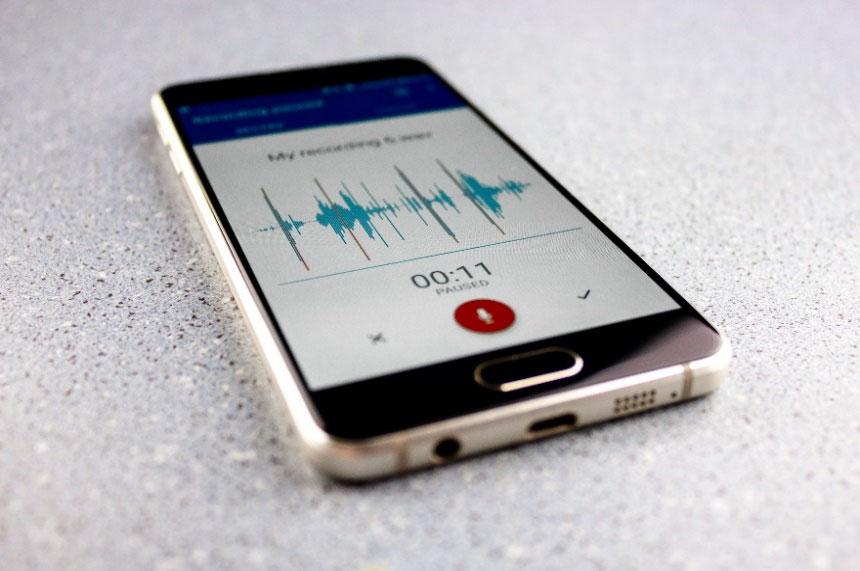
Title IX Training7/19‐20/2023 © 2023 Husch Blackwell LLP. All Rights Reserved.
125 126
Example sources of non-testimonial evidence
The parties
The witnesses
Institutional email
Video cameras
Key card logs Timesheets
Public social media
Institution-owned computers
Institution-owned personal devices
Information on institutional servers Police
© 2023 Husch Blackwell LLP
May an investigation collect evidence on sexual history?
Generally, no –Evidence of a complainant’s prior sexual behavior is relevant only if offered to prove that someone other than the respondent committed the conduct, or if evidence of specific incidents of the complainant’s prior sexual behavior with the respondent are offered to prove consent
© 2023 Husch Blackwell LLP
Title IX Training7/19‐20/2023 © 2023 Husch Blackwell LLP. All Rights Reserved.
127 128
Respondent claims to have understood Complainant to have consented to particular sexual activity because, when Respondent engaged in the same type of activity with Complainant in the past, Complainant remarked on really being surprised at having enjoyed it.

May an investigation collect and rely on privileged records?
•Only if a party waives the privilege
•An institution may not access information under a legally recognized privilege unless the holder of the privilege waives it
•Institution cannot unilaterally access its own counseling and health files for investigation purposes
Title IX Training7/19‐20/2023 © 2023 Husch Blackwell LLP. All Rights Reserved.
2023 Husch Blackwell LLP
©
2023 Husch Blackwell LLP
2023 Husch Blackwell LLP
Example: Sexual history? ©
©
129 130
Complainant provides to the investigator a redacted version of Complainant’s gynecological exam, conducted two days after alleged assault and including pregnancy and STD test results.
Example: Permissible collection ©

Institution accessed information from Complainant’s campus counseling records without Complainant’s consent and included them among investigation records shared with Respondent.

Title IX Training7/19‐20/2023 © 2023 Husch Blackwell LLP. All Rights Reserved.
2023 Husch Blackwell LLP
©
2023 Husch Blackwell LLP
2023 Husch Blackwell LLP
©
2023 Husch Blackwell LLP 131 132
Example: Impermissible collection ©
Do the parties have access to the evidence?

•Parties must be given access to all inculpatory and exculpatory evidence directly related to the allegations (regardless of whether the institution intends to rely on it) at least 10 days before the investigation report is finalized
•Evidence must be provided to a party and their advisor in physical copy or electronically
•Any earlier access to the evidence must be provided equally
What exactly has to be shared?
•Anything that has “evidentiary” value
•That is, the information is potentially inculpatory or exculpatory in light of the allegations at issue; or is otherwise potentially relevant
•E.g., witness statements; interview transcripts; text messages; social media posts; photographs; etc.
•Logistical communications; calendar invites; support measure communications generally are not shared
©
Title IX Training7/19‐20/2023 © 2023 Husch Blackwell LLP. All Rights Reserved.
2023 Husch Blackwell LLP
©
2023 Husch Blackwell LLP
133 134
Do the parties get to respond to the evidence?
•Yes –after they review the evidence provided at least 10 days prior to issuance of the investigation report, parties can provide written responses
•Depending on written responses, additional investigation may be needed
•Investigator should consider the written responses in drafting final language of investigation report

After completing all interviews, investigator uploads interview transcripts and other evidence to a secure file sharing program and sends individual links and passwords to each party and their advisor, placing party-specific watermarks on the evidence.

©
Title IX Training7/19‐20/2023 © 2023 Husch Blackwell LLP. All Rights Reserved.
2023 Husch Blackwell LLP
©
2023 Husch Blackwell LLP
Blackwell LLP 135 136
Example: Permissible provision of evidence © 2023 Husch
Is the evidence “confidential?”
•Institution may require parties and advisors to agree not to disclose investigation evidence to third-parties
•But cannot prohibit parties from speaking about the allegations themselves

How is the investigation concluded?
•Issuance of a written investigation report
•Must fairly summarize the evidence collected, including both inculpatory and exculpatory evidence
•Must be provided to each party and their advisor at least 10 days prior to any hearing
©
Title IX Training7/19‐20/2023 © 2023 Husch Blackwell LLP. All Rights Reserved.
2023 Husch Blackwell LLP
©
Blackwell LLP
2023 Husch
137 138
Does the investigation report make findings?
•No –the investigation report fairly summarizes the relevant inculpatory and exculpatory evidence collected during the investigation
•Under the currentTitle IX regulations, factual findings and determinations of policy violations are made by a decision-maker at a subsequent hearing
May parties have an advisor during the investigation?

•Yes –parties may be accompanied to any investigative interviews and meetings by an advisor of their choice
•Advisor may be an attorney, but does not have to be
•Institution may confine advisor to a passive role during the investigation phase
•Institution is not required to provide an advisor during the investigation phase
Title IX Training7/19‐20/2023 © 2023 Husch Blackwell LLP. All Rights Reserved.
© 2023 Husch Blackwell LLP
© 2023 Husch Blackwell LLP
139 140
The institution sends a written notice of investigation to Respondent requesting an interview. Advisor insists that Respondent not be interviewed until Advisor is available in four weeks. Institution’s policy states that advisors play a passive role during the investigation phase and may not obstruct institution’s process.

Complainant identified Roommate as an Advisor. Roommate was present during the alleged sexual misconduct and Respondent has named Roommate as a witness.

Title IX Training7/19‐20/2023 © 2023 Husch Blackwell LLP. All Rights Reserved. © 2023 Husch Blackwell LLP
© 2023 Husch Blackwell LLP © 2023 Husch Blackwell LLP
Example: Advisor conduct
2023 Husch Blackwell LLP 141 142
Example: Advisors
©

Group Scenario
Professor is up for tenure review. Before resigning, Fellow worked in Professor’s research lab. When asked about Professor during the tenure review process, Fellow informed the tenure review committee that Professor had once thrown items at Fellow in the lab and that Professor expects unreasonably long hours of fellows because of Professor’s cultural background. The committee nevertheless recommended promotion.
Two days later, Fellow reported to the Title IX coordinator that Professor “raped” Fellow, and that the two later engaged in a secret consensual sexual relationship. More specifically, Fellow said that Professor invited Fellow to the lab one night and began kissing and groping Fellow; and that, after forcefully trying to push Professor away, Fellow agreed to engage in further sexual relations that night and they had a secret affair thereafter.
After receiving notice of a rape allegation, Professor denies sexual contact with Fellow, consensual or otherwise. Professor alleges that, before Fellow filed the complaint, a colleague heard Fellow threaten to interfere with Professor’s tenure process. Professor claims to have not been on campus on the day/night Fellow alleges rape. Professor alleges that another student told Professor that Fellow had lobbied to keep peers out of Professor’s lab during the time Fellow claims the two were in a consensual relationship. When asked to provide a list of all days when he was present on campus, Professor asks for counsel.

Title IX Training7/19‐20/2023 © 2023 Husch Blackwell LLP. All Rights Reserved.
© 2023 Husch Blackwell LLP
143 144
© 2023 Husch Blackwell LLP
Questions
The Hearing
©
What is the purpose of the hearing?
•To hear testimony and receive non-testimonial evidence so that
•The decision-maker can determine facts under a standard of evidence
•Apply those facts to the policy, and
•Issue a written determination resolving the formal complaint and imposing discipline/remedial measures as necessary
©
Title IX Training7/19‐20/2023 © 2023 Husch Blackwell LLP. All Rights Reserved.
Husch Blackwell LLP
2023
Husch Blackwell LLP
© 2023
Blackwell LLP
2023 Husch
145 146
Who is the “decisionmaker”?
•A single hearing officer; or
•A hearing panel led by a chair

© 2023 Husch Blackwell LLP
What standard of evidence can be used?
•Either
•Preponderance of the evidence OR
•Clear and convincing evidence
•Institution must select a standard and apply it uniformly in all cases, regardless of the identity of the respondent
© 2023 Husch Blackwell LLP
Title IX Training7/19‐20/2023 © 2023 Husch Blackwell LLP. All Rights Reserved.
147 148
What happens before the hearing?
•Parties are provided the final investigation report at least 10 days prior to the hearing
•“Decision-maker” must be identified and clear conflicts of interest assessment
•Hearing must be scheduled and logistics arranged
•Witnesses must be notified
•Pre-hearing conference should be held
©
How do we schedule a hearing?

•Set aside sufficient time considering the nature and complexity of the case
•Consider class and work schedules of parties and key witnesses to avoid conflicts
•Consider pre-scheduling a backup or “spill over” date in the event the hearing runs long or must be continued
•Provide letters excusing parties and witnesses from other obligations, as necessary
©
Title IX Training7/19‐20/2023 © 2023 Husch Blackwell LLP. All Rights Reserved.
Husch Blackwell LLP
2023
Husch Blackwell LLP
2023
149 150
How do we notify parties and witnesses?
•Institution must provide written notice to the parties of time and place of hearing
•Institution should provide written notice to witnesses requesting their presence
•Notice may be issued by the decision-maker or another institutional official in coordination with decision-maker
What is a pre-hearing conference?
•A meeting with the parties, decisionmaker, and other necessary officials to:
•Address logistical issues and concerns
•Discuss the sequence of the hearing and rules of decorum
•Hear and resolve objections or concerns that can be addressed in advance
•Take up other issues that will ensure hearing time is focused on testimony
©

Title IX Training7/19‐20/2023 © 2023 Husch Blackwell LLP. All Rights Reserved.
© 2023 Husch Blackwell LLP
2023 Husch Blackwell LLP
151 152
What are other considerations?
•The pre-hearing conference can be two separate meetings—one with each party and advisor; but follow up notification may be required
•The pre-hearing conference can be conducted virtually
•Advisors should be allowed to attend although their role can still be passive if the institution desires
•The pre-hearing conference is not required but is a best practice that facilitates a smooth hearing
How does the hearing actually work?
•Title IX regulation is largely silent on specific elements
•Required elements in the regulation include:
Decision-maker(s) must independently evaluate questions for relevance and resolve relevancy objections
EXCLUSIONARY RULE NO LONGER IN FORCE
Parties’ advisors must be allowed to conduct live questioning of other parties and witnesses
Questioning of sexual history generally not permitted
©
Title IX Training7/19‐20/2023 © 2023 Husch Blackwell LLP. All Rights Reserved.
2023 Husch Blackwell LLP
©
2023 Husch Blackwell LLP
153 154
What is a potential sequence?
Statement and questioning of complainant
Statement and questioning of respondent
Questioning of witnesses
Closing statement by complainant
Closing statement by respondent
© 2023 Husch Blackwell LLP
Is an advisor allowed to question their own party?

•Not unless the institution chooses to allow it
•The Title IX regulation requires crossexamination, but not “direct” examination
© 2023 Husch Blackwell LLP
Title IX Training7/19‐20/2023 © 2023 Husch Blackwell LLP. All Rights Reserved.
155 156
Who determines relevance?
•Decision-maker(s) must screen questions for relevance and resolve relevance objections
•Decision-maker(s) must explain any decision to exclude a question as not-relevant

Medical Student has accused Clinical Supervisor of quid pro quo sexual harassment, mainly in the form of offering students who tolerate Clinical Supervisor’s inappropriate sexual comments better opportunities to perform procedures. Clinical Supervisor denies that Medical Student received lower quality procedure assignments. Medical Student submits evidence that students who perform certain procedures are more likely to get plumb residencies.
Example: Relevant

©
Title IX Training7/19‐20/2023 © 2023 Husch Blackwell LLP. All Rights Reserved.
Blackwell LLP
© 2023 Husch
Blackwell LLP
2023 Husch
157 158
© 2023 Husch Blackwell LLP
Female student accuses a male student of creating a hostile environment by repeatedly telling jokes about beating women. Female student testifies about her awareness of multiple female victims of dating violence in her residence hall.
Example: Relevant?

©
©
Does any testimony get excluded?
•Evidence excluded if not relevant
•Evidence excluded if impermissible sexual history or confidential/privileged
•Testimony is no longer excluded under the exclusionary rule
©
Title IX Training7/19‐20/2023 © 2023 Husch Blackwell LLP. All Rights Reserved.
2023 Husch Blackwell LLP
2023 Husch Blackwell LLP
2023 Husch Blackwell LLP
159 160
Respondent stated in an investigative interview that Respondent could not have committed sexual assault on the night in question because Respondent was out of town. Respondent’s credit card records contradict this. At a hearing, Respondent testifies to no memory of the night in question. How should the hearing officer evaluate? Example: Exclusion?

Is an advisor required to ask questions a party wants asked?
•Advisors should consult with their party and consider their preferences for what questions to ask
•But an advisor must exercise their own reasonable judgment and is never required to ask questions that the advisor knows are improper (e.g., invade sexual history)
•An advisor may consult the decision-maker if a party demands the advisor ask a question that advisor is uncertain is appropriate
Title IX Training7/19‐20/2023 © 2023 Husch Blackwell LLP. All Rights Reserved.
2023 Husch Blackwell LLP
©
2023 Husch Blackwell LLP
2023 Husch Blackwell LLP
©
©
161 162
Can we have standards of decorum for hearings?
•Yes, strongly recommended
•But standards must be applied equally/equitable to both parties ©

Institution’s hearing procedures require all participants to turn on their cameras throughout any testimony, to avoid interrupting others, and to mute themselves when not speaking.

Title IX Training7/19‐20/2023 © 2023 Husch Blackwell LLP. All Rights Reserved.
2023 Husch Blackwell LLP
©
2023 Husch Blackwell LLP
2023 Husch Blackwell LLP 163 164
Example: Rules of decorum ©
Are there “objections” at hearings?
•Minimally, the institution must allow a party to raise an objection that evidence is not relevant or should be specifically excluded (e.g., sexual history; confidential privilege)
•Institution may permit other objections to be raised
Can we delay or “continue” a hearing once it starts?
•Yes, but only if a delay is not clearly unreasonable
•Consider pre-scheduling an alternative date
•Inconvenience alone should not be the determinative factor; every date will inconvenience someone

•Institution may limit the right of objection to a party ©
Title IX Training7/19‐20/2023 © 2023 Husch Blackwell LLP. All Rights Reserved.
2023 Husch Blackwell LLP
©
2023 Husch Blackwell LLP
165 166
How do(es) the decision-maker(s) decide a case?




After hearing, decision-maker(s) must deliberate and consider all the admissible testimony and admissible non-testimonial evidence
Evaluate evidence for weight and credibility
Resolve disputed issues of fact under the standard of evidence adopted by the institution
Using the facts as found, apply the policy’s definitions to those facts to determine whether sexual harassment occurred
©
Assessment of credibility
•Line up facts relevant to credibility
•Factors (among others)

©
•Plausibility—Is the testimony believable and does it make sense?
•Specificity
•Motive to falsify—Does the person have a reason to lie (other than mere status as party)?
•Corroboration/consistency/contrary evidence—Is there testimony or evidence that corroborates the witness account? Are the witness accounts consistent? Are inconsistencies explained? Is there evidence disputing the witness account?
•Past Record—Does the person have a history of similar behavior?
Title IX Training7/19‐20/2023 © 2023 Husch Blackwell LLP. All Rights Reserved.
2023 Husch Blackwell LLP
2023 Husch Blackwell LLP
167 168
How do(es) the decision-maker(s) issue a decision?
•In a written document, provided contemporaneously to the parties that:
•Identifies the allegations of sexual harassment
•Describes the various procedural steps taken from the time the formal complaint was made
•States findings of facts supporting the determination
•Reaches conclusions regarding application of relevant policy definitions to the facts
•Includes a rationale for each finding for each allegation
•States the disciplinary sanctions and remedies, if implicated by the determination made, and
•Explains the procedures and grounds for appeal
Who determines discipline and remediation?
•Some institutions will have the decision-maker(s) also impose discipline
•Others may refer a disciplinary authority with jurisdiction over the respondent (i.e., Dean of Students, Provost, Director of Human Resources, etc.)
•If referred to someone else, that must occur before the written determination is issued
©

Title IX Training7/19‐20/2023 © 2023 Husch Blackwell LLP. All Rights Reserved.
© 2023 Husch Blackwell LLP
2023 Husch Blackwell LLP
169 170
Sanctioning Goals
•Punitive
•Safety
•Reduce recidivism / recurrence
•Advance educational and developmental growth of offender (learning from one’s mistake)
•Appropriate fit for circumstances
© 2023 Husch Blackwell LLP
What are common aggravating and mitigating factors?
•Egregiousness of misconduct (e.g., act of violence, use of a weapon, use of drug)
•State of mind of respondent (bias-motivated, reckless or negligent, prior education)
•Safety risk to the broader community
•Impact statement
•Conduct during the investigation and adjudication (cooperative or less than cooperative)
•Circumstances relating to a lack of consent (force, threat, coercion, intentional incapacitation)
•Position of trust / power differential
© 2023
Title IX Training7/19‐20/2023 © 2023 Husch Blackwell LLP. All Rights Reserved.
Husch Blackwell LLP
171 172
International PhD student was found responsible for stalking after Complainant declined advances and PhD student sent four text messages and two emails to Complainant repeatedly asking for dates. PhD student was removed from student housing and job as a teaching assistant, leading to the loss of visa and ability to complete the PhD.

What are the grounds for appeal?



Title IX Training7/19‐20/2023 © 2023 Husch Blackwell LLP. All Rights Reserved.
2023 Husch Blackwell LLP
©
considerations © 2023 Husch Blackwell LLP © 2023 Husch Blackwell LLP
Example: Disciplinary
Title IX regulation requires the following permitted grounds: Procedural irregularity that affected the outcome of the matter New evidence that was not reasonably available at the time the determination regarding responsibility or dismissal was made, that could affect the outcome of the matter; or Title IX Coordinator, investigator, or decision-maker (hearing official) had a conflict of interest or bias against complainants or respondents generally or the individual complainant or respondent that affected the outcome of the matter 173 174
Medical student suspended for four years appealed suspension decision alleging institution failed to provide due process. Multiple review committees determined that proposed sanction was within the range of reasonable sanctions.


Title IX Training7/19‐20/2023 © 2023 Husch Blackwell LLP. All Rights Reserved.
© 2023 Husch Blackwell LLP
Example: Appeal and due process
© 2023 Husch Blackwell LLP
© 2023 Husch Blackwell LLP
175 176
Ryan’s hearing Example

Group Scenario
Ryan Respondent is a first-year student at College who has been accused of sexual assault by two different students, Cameron Complainant and Connor Complainant. The incidents are alleged to have occurred 24 hours apart.
The case proceeds to a virtual hearing, despite Ryan’s request that the hearing be conducted live and in-person.
Ryan’s advisor asks Cameron questions regarding inconsistent testimony Cameron gave during the investigation and at the hearing, but Cameron refuses to answer.
The hearing officer’s determination specifically references the testimony that Cameron gave during the investigation that Ryan’s advisor tried to challenge during the hearing. But the determination does not mention Cameron’s inconsistent statement at the hearing. The hearing officer determines that Ryan is responsible for both alleged instances of sexual assault.

Questions
Title IX Training7/19‐20/2023 © 2023 Husch Blackwell LLP. All Rights Reserved.
Husch Blackwell LLP
© 2023
© 2023 Husch Blackwell LLP
177 178
Informal Resolution & Other Processes
© 2023 Husch Blackwell LLP
© 2023 Husch Blackwell LLP
What is informal resolution?
•A voluntary process to resolve formal complaints of sexual harassment through a mechanism other than the default investigation and hearing.
© 2023 Husch Blackwell LLP

Title IX Training7/19‐20/2023 © 2023 Husch Blackwell LLP. All Rights Reserved.
179 180
What are the key concepts of informal resolution?

A formal complaint must first have been filed and written notice given to the parties

The parties must voluntarily agree to participate in writing

The parties must be apprised in writing of how the informal resolution process will work and the consequences of participating in it

What are the limitations?
•Informal resolution cannot be used where an employee is accused of sexually harassing a student
•Informal resolution cannot be used in the absence of a formal complaint
•Institution cannot require persons to consent to informal resolution as a condition of employment or enrollment
The parties must be allowed to withdraw from informal resolution up until the point it is final ©
Title IX Training7/19‐20/2023 © 2023 Husch Blackwell LLP. All Rights Reserved.
2023 Husch Blackwell LLP
©
2023 Husch Blackwell LLP
181 182
Undergraduate student files a written sexual harassment complaint against a full-time administrative assistant who also spends 20% of their time taking graduate-level classes. The undergraduate orally requests that the Title IX Coordinator mediate an informal resolution that will include a no contact order.

Student A accuses Student B of secretly recording Student A naked and selling the videos to other students in the same residence hall. The complaint is reported in the news. Student A wants Student B to withdraw, and Student B will do so if the institution approves the agreement.

Title IX Training7/19‐20/2023 © 2023 Husch Blackwell LLP. All Rights Reserved.
© 2023 Husch Blackwell LLP
Example: Impermissible informal resolution
© 2023 Husch Blackwell LLP
© 2023 Husch Blackwell LLP
Example: Permissible informal resolution
183 184
© 2023 Husch Blackwell LLP
Must an institution allow informal resolution?
•Current regulations permit but do not require informal resolution
© 2023 Husch Blackwell LLP
What factors should be considered in approval?
•Severity and nature of the conduct
•Whether respondent is repeat offender
•Presence of other conduct violations
•Public perception
•Confidence in parties’ ability to uphold agreement
•Sufficiency of the terms
•Others?
© 2023 Husch Blackwell LLP
Title IX Training7/19‐20/2023 © 2023 Husch Blackwell LLP. All Rights Reserved.
185 186
What issues need to be addressed in informal resolution?
•The substantive terms
•How compliance will be verified
•The punishment for non-compliance
•The effect on the pending formal complaint
•The effect on collateral conduct charges/policy violations
•Others?
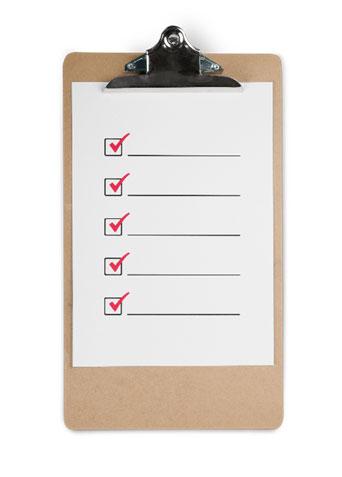
Two students enter informal resolution requiring Respondent to complete drug and alcohol rehab and to attend weekly Narcotics Anonymous meetings. How would this agreement be verified?

Title IX Training7/19‐20/2023 © 2023 Husch Blackwell LLP. All Rights Reserved. © 2023 Husch Blackwell LLP
2023 Husch Blackwell LLP
©
2023 Husch Blackwell LLP 187 188
Example: Informal resolution detail ©
Student and Alumnus enter informal resolution requiring Alumnus to stay off campus until Student graduates in Spring 2025. What would happen if Student fails to graduate and remains enrolled after Spring 2025?

Two employees agree to informal resolution in which Respondent will complete a 20-hour intensive cultural awareness and antiharassment course. Respondent attends 19 hours of the course. How will noncompliance be addressed?

Title IX Training7/19‐20/2023 © 2023 Husch Blackwell LLP. All Rights Reserved.
2023 Husch Blackwell LLP
©
2023 Husch Blackwell LLP
2023 Husch Blackwell LLP
Example: Informal resolution detail ©
©
2023 Husch Blackwell LLP 189 190
Example: Informal resolution detail ©
How should we document an informal resolution?
•Documented in writing
•All essential termsin the same document
•Signed by the parties
•Dated
•Indicating institutional approval
•Indicating closure of grievance procedure
©
Is Title IX the exclusive process for resolving sexual misconduct?

©
•No
•Title IX does not preclude the use of other policies and processes that may be implicated by a report of sexual misconduct
Title IX Training7/19‐20/2023 © 2023 Husch Blackwell LLP. All Rights Reserved.
Husch Blackwell LLP
2023
Blackwell LLP
2023 Husch
191 192
What other policies/processes may apply?
•Title VII policy
•Consensual relationships policy
•Professionalism policies
•Student code of conduct
©
•Threat assessment
•Employee handbook provisions
•Faculty handbook provisions
•Contractual provisions
At what point can we use some other policy?
Depending on facts:
©
Title IX Training7/19‐20/2023 © 2023 Husch Blackwell LLP. All Rights Reserved.
2023 Husch Blackwell LLP
2023 Husch Blackwell LLP
grievance
the same time as a Title IX grievance process
a
IX grievance process
Before a Title IX
process At
After
Title
193 194
Can we use another process to make the same finding we would otherwise make under Title IX policy?
•No
•Title IX regulation requires the use of specific Title IX process for any “sexual harassment” as defined by Title IX that occurs in institution’s programs and activities ©

During an investigation of employee’s claim of hostile environment sexual harassment, Complainant states repeatedly that the alleged misconduct did not interfere with Complainant’s ability to participate in education programs or activities.

Title IX Training7/19‐20/2023 © 2023 Husch Blackwell LLP. All Rights Reserved.
2023 Husch Blackwell LLP
©
2023 Husch Blackwell LLP
195 196
Example: Policy pivot
© 2023 Husch Blackwell LLP
Student alleges that, when visiting Student Drug Dealer’s residence hall room to purchase Molly, Dealer sexually assaulted student. The institution’s conduct code violation procedure provides an immediate hearing with the dean, followed by an opportunity to appeal to a panel of three faculty members.

Key Takeaways:
Current regulations & policies
•Prompt, thorough, fair process
•Follow policies/procedures
•Thorough documentation
•It takes a team: Opportunities to “phone a friend” throughout

Title IX Training7/19‐20/2023 © 2023 Husch Blackwell LLP. All Rights Reserved.
2023 Husch Blackwell LLP
©
2023 Husch Blackwell LLP
Example: Policy pivot ©
2023 Husch Blackwell LLP 197 198
©
Example

© 2023 Husch Blackwell LLP

Group Scenarios
Student accused the University’s club cycling team Volunteer Coach, who is also a student at the University, of quid pro quo sexual harassment. Student alleges that Volunteer Coach told Student that the team would pay for Student to attend a prestigious cycling competition, but only if Student agreed to share a hotel room with Volunteer Coach.
Student reported the conduct to Title IX Coordinator. During a phone conversation with the Title IX Coordinator, Student said that they did not want to fill out a written Formal Complaint, buthoped that this conversation would suffice.
Title IX Coordinator conducted an investigation intoStudent’s complaint, but the parties eventually agreed to informal resolution. Title IX Coordinator served as the facilitator for the informal resolution.
© 2023 Husch Blackwell LLP
Title IX Training7/19‐20/2023 © 2023 Husch Blackwell LLP. All Rights Reserved.
Volunteer cycling coach
199 200


Title IX Training7/19‐20/2023 © 2023 Husch Blackwell LLP. All Rights Reserved. © 2023 Husch Blackwell LLP Questions © 2023 Husch Blackwell LLP Proposed Regulatory Changes © 2023 Husch Blackwell LLP 201 202
Reminder –Evolving Regulations
•Prior portions of training based on currentlyoperative sexual harassment regulations (August 2020)
•We highlight potential changes that may result from proposed regulations that are not yet effective

Expanded Scope of Conduct Subject to Heightened Regulatory Requirements

Proposed regulation requires grievance procedures for all forms of sex discrimination

Proposed regulation continues to require more rigorous procedures for “sex-based” harassment
Title IX Training7/19‐20/2023 © 2023 Husch Blackwell LLP. All Rights Reserved.
2023 Husch Blackwell LLP
©
2023 Husch Blackwell LLP
2023 Husch Blackwell LLP
©
©
203 204
Female faculty-member physician complains that male faculty-member physicians receive significantly higher pay than similarly situated female faculty-member physicians for work with medical students.
Example: Expanded scope

© 2023 Husch Blackwell LLP
© 2023 Husch Blackwell LLP
Expanded Scope of Expressly Covered Off-Campus Conduct
•Proposed regulation would provide:
•Jurisdiction will extend to off-campus sex discrimination where:
•Respondent represents the institution through their authority
•Respondent is engaged in conduct under the institution’s “disciplinary authority”
•Off-campus conduct contributes to a hostile environment within programs and activities
© 2023 Husch Blackwell LLP
Title IX Training7/19‐20/2023 © 2023 Husch Blackwell LLP. All Rights Reserved.
205 206
Definition Update: “On the Basis of Sex”
•Proposed regulation would provide:
•“On the basis of sex” includes:






Title IX Training7/19‐20/2023 © 2023 Husch Blackwell LLP. All Rights Reserved.
2023 Husch Blackwell LLP
©
Assigned sex/biologic al sex Sex stereotypes Sex characteristics Sexual orientation Pregnancy & related conditions
2023 Husch Blackwell LLP
©
Example
2023 Husch Blackwell LLP 207 208
Audrey’s pregnancy
©

To recap …
Audrey is a student in University’s nursing program and she is 8 months pregnant. She has frequent medical appointments and has missed several classes in Professor’s Microbiology course due to pregnancy complications.
After missing multiple in-class quizzes and participation points due to medical appointments, Audrey has a grade of C in Professor’s course. She informs Professor that she is pregnant and requests alternative arrangements for tests and quizzes on days that she feels ill or has an appointment scheduled. Professor declines Audrey’s request.
Audrey ultimately fails the course after missing her final exam due to emergency pregnancy complications. Audrey emailed Professor after the exam, but Professor refused to reschedule the final exams for her.
Audrey files a Title IX Complaint against Professor, which goes to a hearing. During the hearing, it is revealed that Audrey also informed her other professors at the University of her pregnancy. Though those professors helped modify their courses for her, none of the professors provided Audrey with the Title IX Coordinator’s contact information.
©
Definition Update: “Quid Pro Quo”
•Proposed regulation would provide:
•“Quid pro quo” could also be committed by a person who is an “agent” or “other person authorized by the recipient to provide an aid, benefit, or service”
•“Conditioning” could be explicit or implicit
Title IX Training7/19‐20/2023 © 2023 Husch Blackwell LLP. All Rights Reserved.
2023 Husch Blackwell LLP
© 2023 Husch Blackwell LLP
209 210
A student alleges that a volunteer coach has a foot fetish and has openly admitted that feet “turn him on.” Student alleges that volunteer coach offered more playing time in exchange for the student sending photos of student’s feet.

Definition Update: “Hostile Environment”
•Proposed regulation would alter to:
•Severe or pervasive
•Evaluated subjectively and objectively
•Denies or limits a person’s ability to participate in or benefit from programs and activities
•Considering numerous facts and circumstances

Title IX Training7/19‐20/2023 © 2023 Husch Blackwell LLP. All Rights Reserved.
2023 Husch Blackwell LLP
©
Example: Updated quid
quo
2023 Husch Blackwell LLP
2023 Husch Blackwell LLP
pro
©
©
211 212
Clarifications: Retaliation
•Proposed regulation would:
•Clarify that retaliation complaints can be consolidated with related sexual harassment complaints
•Clarify that instituting a code of conduct proceeding against a person for the purposing of interfering with their rights is retaliation
•Clarify that peer-on-peer retaliation is prohibited
•New definition of retaliation will make clear that conduct charges cannot be used to retaliate against a student for exercising Title IX rights or refusing to participate in Title IX grievance process.
Student Respondent declines to participate in an investigation but, affirms that Respondent wants access to evidence at the conclusion of the institution’s investigation. Title IX officer asks student conduct board to proceed on alcohol policy violation charges against Respondent related to Respondent’s alleged Title IX Sexual Harassment, despite institution’s amnesty provisions.
Example: Student conduct retaliation

Title IX Training7/19‐20/2023 © 2023 Husch Blackwell LLP. All Rights Reserved.
2023 Husch Blackwell LLP
©
2023 Husch Blackwell LLP
©
2023 Husch Blackwell LLP 213 214
©
Proposed regulation would create classes of mandatory reporters:
•Employees with authority to implement corrective measures
•Administrative leaders, teachers and advisors
•Other employees either to report or to provide contact for Title IX Coordinator and information about how to report

©
Expanded Monitoring Obligations
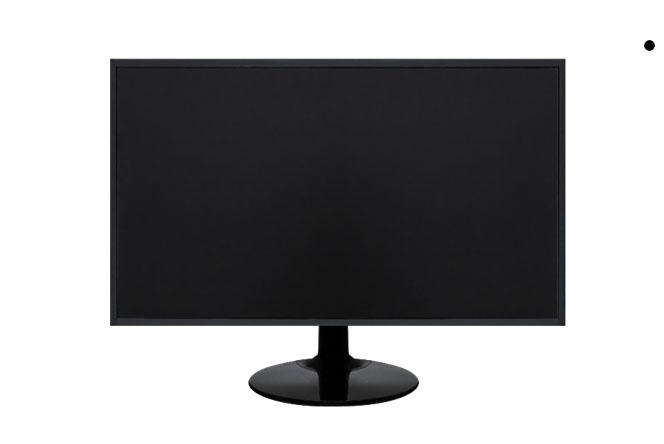
•Proposed regulation would:
•Impose affirmative duty on Title IX Coordinator to monitor barriers to reporting and take reasonable steps to address barriers
•Potential methods for monitoring include surveys, targeted feedback, anonymous feedback websites and emails, etc.
©
Title IX Training7/19‐20/2023 © 2023 Husch Blackwell LLP. All Rights Reserved.
2023 Husch Blackwell LLP
©
Expanded Express Immediate Response Obligations
2023 Husch Blackwell LLP
2023 Husch Blackwell LLP
215 216
Elimination of “Formal Complaint” requirement
Proposed regulation would eliminate the concept of a “formal” complaint
New regulation recognizes only a “complaint” that can be verbal or written
Title IX coordinator verifies by phone that Complainant wants the institution to proceed with a formal investigation, and documents as much in notes.

©
Title IX Training7/19‐20/2023 © 2023 Husch Blackwell LLP. All Rights Reserved.
2023 Husch Blackwell LLP
©
2023 Husch Blackwell LLP
Example: Verbal complaint update
2023 Husch Blackwell LLP 217 218
©
Update: Timing of Prohibited Conduct
•Proposed regulation would allow complaints from someone who was a participant in education programs and activities at the time of the alleged misconduct

A former student complains of domestic violence committed by an employee when the former student was enrolled and also working full time at the institution. The former student has moved away. Former student has no desire to be involved with the institution in any way going forward because they had such a negative experience in the past.

©
Title IX Training7/19‐20/2023 © 2023 Husch Blackwell LLP. All Rights Reserved.
© 2023 Husch Blackwell LLP
2023 Husch Blackwell LLP
Example: Participating at time of alleged misconduct update
219 220
© 2023 Husch Blackwell LLP
Legal Representatives Filing Complaints

•Proposed regulation would provide:
•A person who is legally authorized to act on behalf of a complainant may file a complaint
•E.g., parent, guardian
© 2023 Husch Blackwell LLP
Express Coverage of Preliminary Investigation
•Proposed regulation contemplates preliminary investigation
•To determine identities of the parties
•To clarify allegations prior to dismissing on the basis they could not constitute sex discrimination
© 2023 Husch Blackwell LLP
Title IX Training7/19‐20/2023 © 2023 Husch Blackwell LLP. All Rights Reserved.
221 222
Clarifications: Interim removals

©
•Proposed regulation would provide:
•Interim removals or suspensions can be utilized when there is an “immediate and serious threat to health or safety.”
•Requirement of “physical” threat is removed
One student reports that another placed a secret video camera in a residence hall bathroom and watched Complainant take a shower. There is no allegation of physical contact or threat of physical contact. Institution locates camera and links it back to Respondent’s cell phone number.

©
Title IX Training7/19‐20/2023 © 2023 Husch Blackwell LLP. All Rights Reserved.
2023 Husch Blackwell LLP
2023 Husch Blackwell LLP
Example:
2023 Husch Blackwell LLP 223 224
Immediate and serious threat to health or safety ©
Clarifications: Supportive Measures
•Proposed regulation would provide:
•May be no more restrictive of respondent than is necessary
•Either party affected by a decision regarding supportive measures must be allowed to appeal to an impartial employee
•Respondent must be allowed to challenge supportive measures that burden respondent before they are enacted, except in an emergency
©

Clarifications: Supportive Measures (cont.)
•Proposed regulation would provide:
•Supportive measures may also be shared with another party “only if necessary to restore or preserve that party’s access to the education program or activity.”
•Either party must be allowed to seek modification or termination of supportive measures “if circumstances change materially.”
•Supportive measures that burden a respondent must be terminated at the conclusion of the grievance procedures
©
Title IX Training7/19‐20/2023 © 2023 Husch Blackwell LLP. All Rights Reserved.
2023 Husch Blackwell LLP
2023 Husch Blackwell LLP
225 226
Student Complainant alleges sexual harassment by Student Respondent. A no contact order is entered as a supportive measure. Following a hearing, Respondent is found not responsible for the alleged misconduct. Respondent wants to be able to move freely about campus without worrying about Complainant’s whereabouts.
Example: Supportive measures ending?

Shifting Dismissal Obligations
•Proposed regulations would permit, rather than mandate dismissal
•Regulation commentary suggests that dismissal would be unusual and additional steps may be needed to clarify allegations before dismissal
•Supportive measures and other preventative measures may still be needed even if there is a dismissal
•Proposed regulation would:
•Specifically permit dismissal if the identity of the respondent cannot be determined after reasonable inquiry
Title IX Training7/19‐20/2023 © 2023 Husch Blackwell LLP. All Rights Reserved.
2023 Husch Blackwell LLP
©
2023 Husch Blackwell LLP
2023 Husch Blackwell LLP
©
©
227 228
Interplay of Supportive Measures and Dismissal
•Proposed regulation would provide:
New Option: Combined Investigator/Decision-Maker Model

•Proposed regulation would allow a combined investigation/decision making model
•But, with more robust rights of the parties to pose questions through the investigator
•Proposed regulation would provide:
•If not using a live hearing
•Must allow parties to propose relevant and not otherwise impermissible questions and follow up questions for any party or witness
•Even if a complaint is dismissed, the institution must provide supportive measures to the complainant, as appropriate, and to the respondent if the respondent has been notified ©
Title IX Training7/19‐20/2023 © 2023 Husch Blackwell LLP. All Rights Reserved. © 2023 Husch Blackwell LLP
2023 Husch Blackwell LLP
229 230
Institution moves to a single investigator/decisionmaker model. Investigator completes investigation, provides the parties with access to evidence and an opportunity to submit proposed questions to pose to the other party and witnesses. Investigator then schedules follow-up meetings with each party/witness for whom additional questions have been submitted. Investigator provides any new evidence to the parties and an opportunity to respond. Investigator then proceeds with a determination, consulting others as appropriate to decide any discipline/remediation.
Example: Combined process update

©
Update: Expanded Prohibited Sexual History Evidence
•Proposed definition expanded to prohibit consideration of evidence that
•“Relates to the complainant’s sexual interests or prior sexual conduct” unless
•Showing someone other than respondent committed the act or
•To prove consent with specific incidents between the complainant and respondent
Title IX Training7/19‐20/2023 © 2023 Husch Blackwell LLP. All Rights Reserved.
2023 Husch Blackwell LLP
2023 Husch Blackwell LLP
2023 Husch Blackwell LLP
©
©
231 232
Employee Complainant alleges, as to consent, that Employee never would have consented to sexual contact because, based on religious beliefs, Employee is unmarried and a virgin. Respondent’s advisor seeks to introduce a witness who will testify that the witness engaged in sexual intercourse with Employee before the alleged nonconsensual activity.
Example: Sexual history?

Update: Privilege Waivers
•Proposed regulation would provide:
•Confidentiality of health and medical records must be waived in writing
•Confidentiality of other privileged documents and communications can be waived in a manner permitted in the institution’s “jurisdiction”

Title IX Training7/19‐20/2023 © 2023 Husch Blackwell LLP. All Rights Reserved.
2023 Husch Blackwell LLP
©
2023 Husch Blackwell LLP
2023 Husch Blackwell LLP
©
©
233 234
Clarification: Experts

•Proposed regulation would provide that institutions have discretion to allow or not allow expert witnesses, as long asthe rule applies equally to the parties.
Update: Confidentiality
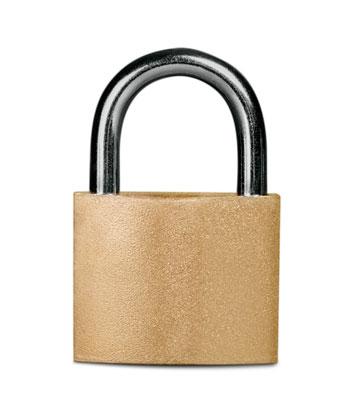
•Proposed regulation would provide that institution “must” take reasonable steps to prevent and address “unauthorized disclosure of information and evidence obtained solely through . . . grievance procedures.”
©
Title IX Training7/19‐20/2023 © 2023 Husch Blackwell LLP. All Rights Reserved.
2023 Husch Blackwell LLP
235 236
Institution’s policy provides that it is a separate policy violation for any individual involved in a Title IX resolution process to discuss information gathered solely as a function of that involvement.
Example: Confidentiality?

©
©
Update: Access to Evidence and Investigation Reports
•Proposed regulation would provide:
•Institution must provide equitable access to the relevant evidence
•Or to a written investigation report that accurately summarizes the evidence and access to relevant evidence upon request
•Must provide a reasonable period of timeto respond beforedetermination
©
Title IX Training7/19‐20/2023 © 2023 Husch Blackwell LLP. All Rights Reserved.
2023 Husch Blackwell LLP
2023 Husch Blackwell LLP
2023 Husch Blackwell LLP
237 238
Update: Access to Evidence and Investigation Reports (cont.)

•Proposed regulation would provide:
•Investigation report becomes optional
•But minimally parties must have access to the relevant evidence itself
•If adopting single investigator/decision-maker model, investigation report is effectively supplanted by a written decision document
©
Update: Response to Evidence
•Proposed regulation would provide:
•Institution must provide the parties with a “reasonable opportunity to review and respond to the evidence” prior to the determination
•May be satisfied simply by allowing the party to respond at the hearing itself
•There is no explicit right to respond to an “investigation report”
•Use of an investigation report is optional; parties may simply be provided access to the evidence itself
©
Title IX Training7/19‐20/2023 © 2023 Husch Blackwell LLP. All Rights Reserved.
2023 Husch Blackwell LLP
LLP
2023 Husch Blackwell
239 240
Definition Update: Relevance
•Proposed regulation would define relevant evidence as that which:
•“May aid a decisionmaker in determining whether the alleged sex discrimination occurred”
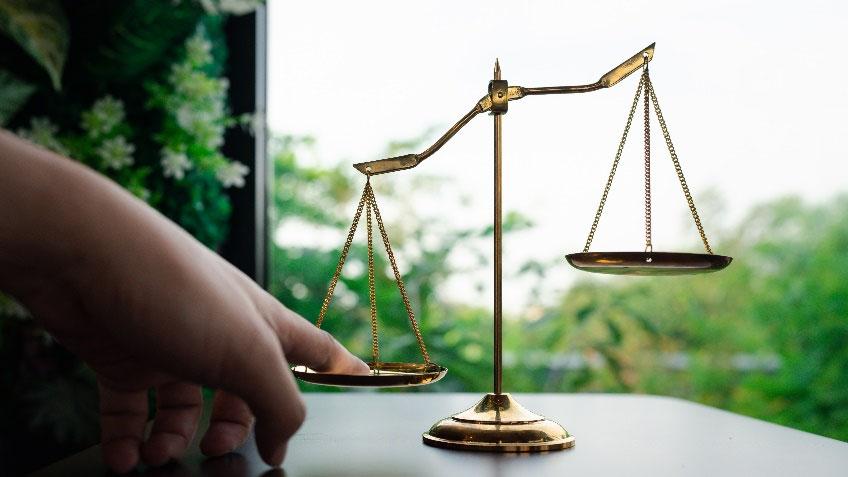
© 2023 Husch Blackwell LLP
Update: Standard of Proof

•Proposed regulation would provide that clear and convincing standard may be used in a sexual harassment case only if used “in all other comparable proceedings, including proceedings relating to other discrimination complaints.”
© 2023 Husch Blackwell LLP
Title IX Training7/19‐20/2023 © 2023 Husch Blackwell LLP. All Rights Reserved.
241 242
Graduate Institution has only 40 students, each an adult engaged in highly specialized scientific research. The vast majority ofemployees at Graduate Institution are physicians or PhDs. Graduate Institution has had Title IX processes in place under a preponderance of the evidence standard for years, as well as required education for all stakeholders. Graduate Institution has had one Title IX Sexual Harassment complaint, which was a clear violation. Graduate Institution amends its policy to match its other existing disciplinary policies, requiring that policy violations be established by clear and convincing evidence.
Example: Clear and convincing update

Update: Prohibited Questions
•Proposed regulation would also prohibit questions that are “unclear or harassing of the party being questioned.”
Title IX Training7/19‐20/2023 © 2023 Husch Blackwell LLP. All Rights Reserved.
© 2023 Husch Blackwell LLP
© 2023 Husch Blackwell LLP
© 2023 Husch Blackwell LLP
243 244
Update: Excluding Evidence Based on Refusal to Respond
•Proposed regulation would reinstitute a partial exclusionary rule:
In an interview, Respondent admits to certain facts suggesting culpability. At a hearing, Respondent denies those facts and refuses to respond when asked, “Were you lying then, or are you lying now?”
•“If a partydoes not respond to questions related to their credibility, the decision-maker must not rely on any statement of that party that supports that party’s position.” ©

Title IX Training7/19‐20/2023 © 2023 Husch Blackwell LLP. All Rights Reserved.
2023 Husch Blackwell LLP
©
Husch Blackwell LLP
2023
Example: Updated
2023 Husch Blackwell LLP 245 246
exclusion ©
Updates: Advisors

©
•Proposed regulation would provide:
•Right to an advisor in sex-based harassment complaints involving postsecondary students
•That an institution-provided advisor does nothave to be an attorney.
Update: Investigation report Details
•Proposed regulation only requires “information about the policies and procedures” used, instead of a listing of all procedural steps.
©

Title IX Training7/19‐20/2023 © 2023 Husch Blackwell LLP. All Rights Reserved.
2023 Husch Blackwell LLP
2023 Husch Blackwell LLP
247 248
Update: Appeal Standard
•Proposed regulation would provide similar grounds for appeal to current regulation, but each requires a showing that the outcome “would” have changed, instead of “could” have changed.

Updates: Informal Resolution
•Formal “written” complaint would no longer be required
•Would not be allowed in any case where an employee is accused of discriminating against or sexually harassing a student.
•Proposed regulation would provide that, if informal resolution fails and the grievance process resumes, the institution may not use evidence obtained solely through informal resolution in the grievance process.
©
Title IX Training7/19‐20/2023 © 2023 Husch Blackwell LLP. All Rights Reserved.
© 2023 Husch Blackwell LLP
LLP
2023 Husch Blackwell
249 250
During informal resolution discussions, Complainant admits to exaggerating Title IX charges somewhat “in part to get back at Respondent for breaking up with me.” Informal resolution fails.
Example: Updated use of informal resolution evidence

Updates: Informal Resolution (cont.)
•Proposed regulation would provide:
•Facilitator of informal resolution cannotbe the investigator or decision-maker.
•Facilitator of informal resolution must be free of conflicts of interest and bias.
•Proposed regulation would provide that, even if a particular case is resolved through informal resolution, Title IX Coordinator must take steps to prevent continuing and recurrence of sex discrimination.
Title IX Training7/19‐20/2023 © 2023 Husch Blackwell LLP. All Rights Reserved.
2023 Husch Blackwell LLP
©
2023 Husch Blackwell LLP
©
251 252
Upcoming Reporting: 2022 Consolidated Appropriations Act & VAWA Reauthorization
•Directs ED to develop a national survey “to gather information on student experiences with domestic violence, dating violence, sexual assault, sexual harassment, and stalking”
•Requires survey results to be reported in a biennial report
•Requires each institution receiving federal assistance to administer the survey and to publish on its website “campus-level results of the standardized elements”:
•Whether victims report
•To whom reports are made
•Whether the victim was informed of resources
•Whether institution conducted an investigationand the duration of investigation
•Impact of incidents on victims’ education, “including diminished grades, dropped classes, leaves of absence, and negative financial consequences”
•The “impact and effectiveness of prevention and awareness programs and complaints processes”
Key Takeaways: Proposed regulations
•Not effective yet
•May change based on comments
•Consider discussing potential changes to policies and procedures

Title IX Training7/19‐20/2023 © 2023 Husch Blackwell LLP. All Rights Reserved.
LLP
© 2023 Husch Blackwell
© 2023 Husch Blackwell LLP
253 254

Title IX Training7/19‐20/2023 © 2023 Husch Blackwell LLP. All Rights Reserved.
255
© 2023 Husch Blackwell LLP



































































































































































